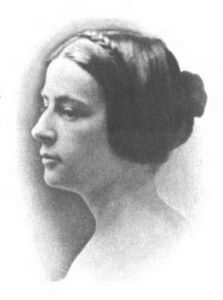
Martha Perry Lowe
About
Martha Perry Lowe was an American writer of poetry and prose, as well as a social activist and organizer. She supported women's rights, temperance, education, and Unitarian organizations. Born in New Hampshire in 1829, her parents were General Justus Perry and Hannah Wood. She was a descendant of William Wood, the supposed author of New England's Prospects, who left England and settled in Concord in 1638. At the age of 15, Lowe was sent to Sedgwick's School for Young Ladies. After her graduation, she spent a winter in the West Indies, and the following year was passed in Madrid with her brother, who was a member of the Spanish legation. In 1857, she married the Rev. Charles Lowe who died in 1874, and at the time of his death was a member of the Somerville school committee. In 1871, when the family went to Europe, Lowe corresponded regularly for the Liberal Christian. In Somerville, she was connected with the Unitarian Review. She was the author of several books of prose and poetry; the most noted ones include The Olive and the Pine, Love in Spain, and a Memoir of Charles Lowe. She was interested in many public and private philanthropies, but her chief interests were in the public schools. She was among the first to advocate the teaching of cooking and sewing, and at her suggestion a sum of money was raised for that purpose. She was one of the founders of the Educational Union in Somerville, one of whose duties was a regular visitation of the schools by its members. She was a member of the Society of American Authors of New York, the Authors' Club of Boston, the Woman's Education Association, and the Unitarian Church Temperance Society, as well as an honorary member of the Castilian Club, of the Heptorean Club, of the Teachers' Annuity Guild, honorary president of the Woman Suffrage League, a director of the Massachusetts Suffrage Association, president of the Woman's Alliance of the First Unitarian Church, and a member of the Cambridge Branch of the Indian Association. She died in Massachusetts in 1902.


